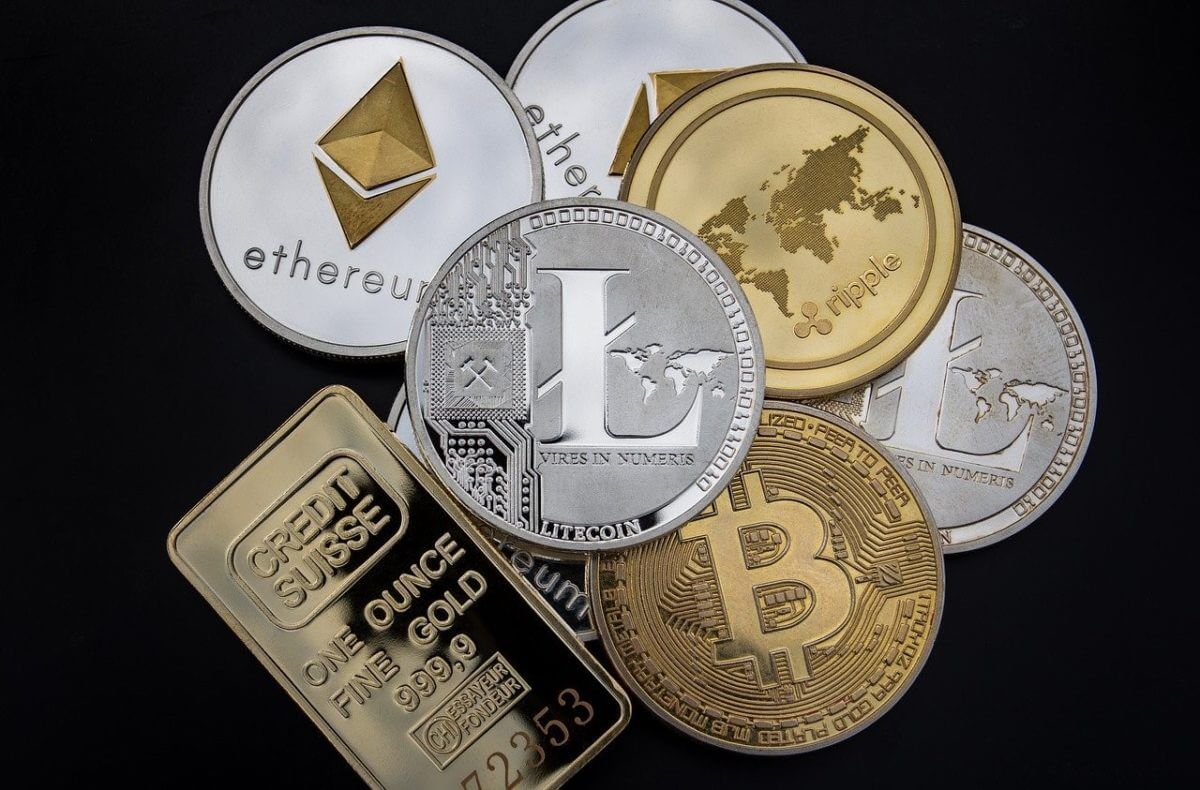
What is the most volatile cryptocurrency?
Have you wondered lately what the most volatile cryptocurrency is? Why are some currencies more volatile than others, and what does the term “volatility” actually mean in the first place?
Crypto enthusiasts and crypto investors worldwide are always looking for cryptos characterized by exceptional volatility for numerous reasons.
Right from the beginning, the cryptocurrency market has been volatile. However, during the last couple of months, that volatility has reached incredible highs.
In fact, people eager to invest in cryptocurrencies should be highly aware that this particular market is rapidly growing.
Thus, it’s crucial to double-check what the most volatile cryptocurrency is before deciding and starting investing.
But, before we get to the point and explain which cryptocurrency is most volatile, let’s get to know the true meaning of the term “volatile”, shall we?
Volatility – explained by professionals
While wandering about the most volatile cryptocurrency stored on Blockchain technology, keep in mind that cryptos are widely reversed investments.
It means that even though two people might invest in the same cryptocurrency, one can lose money, while another can gain a significant profit.
The main explanation for it is that cryptocurrencies are experiencing extreme fluctuations in their valuation, which is known by the term “volatility.” Therefore, cryptos are considered a tremendous volatile investment.
There are speculations among one part of the crypto community that crypto’s value only comes from how much people are willing to trade it for other cryptos, fiat money, or goods in general. It is all about the law of supply and demand.
How to measure volatility?
A strict definition of volatility is a number derived from a study of prices over a specific timeframe, very often a month or a year. So, volatility is known as one of the essential factors that are included in assessing investment risk.
In order to measure volatility, there are two most effective ways:
- Using the “Beta” method to measure how volatile one stock on stock markets is relative to the broader market
- Computing an asset’s standard deviation represents how great its price has divergent from its historical average.
Cryptos for hedging against inflation
To truly understand volatility, before getting to know the most volatile cryptocurrency, you need to know that there are people who do not want to use cryptos as a currency. These enthusiasts are interested in cryptos only as an investment vehicle or use them as a hedge against inflation.
However, if nothing is backing up the value of cryptocurrency, the market’s value is strictly based on speculation. That’s primarily an educated assumption.
Hence, investing in anything considered volatile is a surefire to introducing volatility into your high portfolio.
Moreover, speculative assets investments are typically like hot air balloon rides: you can enjoy the view from the top.
However, once you realize that you’re exclusively suspended by hot air, you’ll understand that you might get off the ride without actually falling.
When it comes to speculation, in often situations, what goes up, has to come down at one point.
Bitcoin’s example of volatility

Did you know that the value of Bitcoin dropped below 30% in just one day? Well, don’t feel shocked. In fact, this is something expected on the market.
From this example, we can see that cryptocurrency isn’t essentially valuable. In fact, nothing is backing up cryptocurrency’s value.
There is a well-known graphic on “The Musk Effect”, or the incredible phenomenon of how greatly the value of Bitcoin gets affected by tweets of Elon Musk, known best as the CEO and co-founder of Tesla company and owner of SpaceX and Twitter.
In fact, it is amazing how a single tweet by a famous person can affect the value of your investments!
So, let’s get back to the situation where the price of Bitcoin dropped 30% in 24 hours. Can you picture the situation of losing 30% of whatever amount you keep in your bank account in just one day?
For that reason, we always recommend people to do deep research to understand what is the most volatile cryptocurrency at the moment, among others.
What are the most volatile cryptocurrencies?
Learning the most volatile cryptocurrency will allow you to understand which crypto has the most significant potential for extreme upward downward moments over short periods.
The most volatile cryptocurrencies in 2024 offer a range of opportunities for investors looking for significant price movements.
Among the most volatile, Smog stands out as the most volatile meme coin, experiencing substantial growth and offering 42% staking APYs.
It’s a new meme token that has seen rapid market cap fluctuations since its launch, making it attractive for those seeking high-reward opportunities, albeit with corresponding risks.
Other notable mentions include Bitcoin Minetrix, known for its stake-to-mine mechanics and substantial fundraising, and Sponge V2, which built on the success of its predecessor with a significant performance boost.
These cryptocurrencies have shown extreme volatility, which can be attributed to various factors including investor sentiment, etc.
The volatility of cryptocurrencies isn’t just confined to newer or lesser-known coins. Established cryptocurrencies like Bitcoin and Ethereum also show significant price movements, reflecting the inherent volatility of the crypto market.
For instance, Bitcoin’s price has undergone considerable changes, highlighting its volatile nature even as the leading cryptocurrency.
Is volatility a good thing?
After getting to know what is the most volatile cryptocurrency, we’d like to give a proper answer to the often asked question, “Is volatility a good thing or not?”
The short answer is: that it all depends on an individual’s tolerance for risk.
Someone who’s risk-averse will likely avoid high-volatility investments because they are all about stability and keeping their wealth.
However, crypto enthusiasts eager to participate in the crypto markets became generally viewed as risk-takers.
What makes cryptocurrencies so important?
Cryptocurrencies have become a focal point of financial, technological, and social discussions, marking a significant shift in how we perceive and interact with money.
Their importance stems from a combination of factors, including technological innovation, financial inclusion, decentralization, and the potential for high returns on investment.
Technological innovation
Cryptocurrencies are at the forefront of blockchain technology, a digital ledger that records all transactions across a network of computers.
This technology ensures security, transparency, and immutability of transactions, making cryptocurrencies a pioneering force in the digital age.
Blockchain technology supports cryptocurrencies. It also has potential applications in various sectors including supply chain management, healthcare, and voting systems, etc.
Financial inclusion
One of the most compelling arguments for the importance of cryptocurrencies is their ability to facilitate financial inclusion.
Traditional banking systems have left a significant portion of the world’s population unbanked or underbanked, primarily due to the lack of access to banking facilities or the necessary documentation.
Cryptocurrencies, accessible to anyone with an internet connection, provide an alternative means of financial engagement.
They enable individuals to participate in the global economy, conduct transactions, and access financial services without the need for traditional banking infrastructure.
Decentralization
The decentralized nature of cryptocurrencies represents a shift away from centralized financial systems controlled by institutions such as banks and governments.
This decentralization reduces the control these institutions have over individuals’ financial assets and transactions. It also mitigates the risk of censorship and provides users with more autonomy over their financial dealings.
Decentralization challenges the traditional power dynamics within the financial sector, advocating for a more democratic and equitable financial system.
Potential for high returns
Cryptocurrencies have gained immense popularity among investors due to their potential for high returns. The volatility of the crypto market, while risky, has led to significant profits for many investors.
Stories of early adopters becoming millionaires have attracted a wave of interest from both retail and institutional investors. This speculative aspect, although controversial, has played a crucial role in bringing cryptocurrencies into the mainstream financial conversation.
Privacy and security
Cryptocurrencies offer enhanced privacy and security features compared to traditional financial transactions. Transactions can be conducted pseudonymously, protecting users’ identities.
Moreover, the underlying blockchain technology provides a secure and tamper-proof ledger, reducing the risk of fraud and hacking. This level of security and privacy is particularly appealing in an era where digital privacy concerns are increasingly prominent.
Cross-border transactions
Cryptocurrencies facilitate seamless cross-border transactions, offering a faster and cheaper alternative to traditional methods like wire transfers.
This capability is especially important for international trade, remittances, and individuals working abroad who need to send money back home.
By eliminating intermediaries, cryptocurrencies make global transactions more accessible and efficient.
Empowerment through smart contracts
The implementation of smart contracts—self-executing contracts with the terms of the agreement directly written into code—further underscores the importance of cryptocurrencies.
These digital contracts automate and enforce the terms of an agreement, reducing the need for intermediaries.
Smart contracts have vast applications, from automating insurance claims to facilitating secure and transparent voting systems.
Challenges and future potential
Despite their benefits, cryptocurrencies face challenges including regulatory scrutiny, market volatility, and concerns over illicit activities.
However, the ongoing development and adoption of regulatory frameworks aim to mitigate these issues, paving the way for more widespread acceptance and use of cryptocurrencies.
Cryptocurrencies represent a groundbreaking development in the financial sector, challenging traditional banking and payment systems.
Their importance lies not only in the technological innovation. They also bring in their potential to create a more inclusive, secure, and efficient financial landscape.
As the technology matures and regulatory environments evolve, cryptocurrencies could play a central role in the future of finance, reshaping how we conduct transactions and interact with the global economy.
Conclusion
According to these statistics, it’s evident that young millennials are more likely to take high-risk investments such as cryptos, which isn’t likely for older counterparts.
A more volatile market achieves more extraordinary price moves, providing more extensive opportunities for earning a tremendous rate of returns on investors’ investments.
Lesser volatility relates to lesser price movements. For that reason, there’s a lower probability of earning the required returns.
Additionally, the possibility of making tremendous amounts of money represents one of the biggest draws for countless investments in cryptocurrencies.
Lastly, knowing what the most volatile cryptocurrency is will, ultimately, be of the utmost importance to investors who are keen to make a lot of money on the market.




